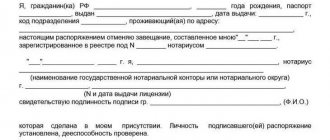The failure of the defendant to appear in court today is a fairly common problem, both for the plaintiff and for the court itself. The solution to this problem is absentee proceedings, the institution of which is aimed at maintaining a balance of interests of the parties in civil proceedings. However, it is worth noting that the defendant’s failure to appear is not enough to make a default judgment; the following conditions must also be present:
- the defendant must be duly notified of the time and place of the trial;
- the defendant should not contain information in the case file about valid reasons for his absence;
- there should be no requests on the part of the defendant to consider the case in his absence.
Important! Absentee proceedings are possible only in the court of first instance.
To use absentee proceedings, the court must issue a ruling, which, as a rule, has a protocol form. The court first obtains the consent of the participants in the process to consider the case in absentia, then the ruling is announced, and all this is entered into the minutes of the court session. Consideration of a case in absentia proceedings, in essence, is no different from the usual process - the court examines evidence, listens to the arguments of participants and witnesses, and makes a decision. The main difference is only the immediate absence of the defendant at the meeting. The procedural law establishes that in order to consider a case in absentia, it is necessary that none of the defendants be present in court, even if the claim is filed against several defendants at the same time. Also, the court cannot make a decision in absentia in a case where, at a court hearing, the plaintiff changes the basis or subject of the claim. In this case, the court is obliged to postpone the trial and send updated claims to the defendant.
Important! The order in absentia is applied only in claims or special proceedings; cases considered in the order of writ proceedings are not subject to consideration in absentia.
Absentee judgment
When considering a case in absentia proceedings, the court makes a decision in absentia, which in its content does not differ from the decision made in the general procedure of legal proceedings. Thus, a decision in absentia consists of four parts: introductory, descriptive, motivational and operative. However, a mandatory requirement is to indicate in the operative part of the decision made by the court in absentia, the deadline and procedure for filing an application to cancel the decision (this application should not be confused with an appeal). In addition, an absentee decision has the following attributes:
- name - should indicate not “Decision”, but “Decline in Absentia”;
- additional links to circumstances and rules of law - these links allow the court to consider the case in absentia;
- additional deadlines and procedures for canceling and appealing a decision.
A copy of the decision in absentia is sent to the defendant (as well as the plaintiff, if he was not present at the court hearing and asked to consider the case without him) by registered mail with acknowledgment of receipt, within 3 days from the date of the decision.
Absentee proceedings. Reasons and order
Absentee proceedings are the consideration by a court of a civil case in the absence (if the defendant fails to appear) at the court hearing.
The institution of absentee proceedings is aimed at maintaining a balance of interests of the parties (plaintiff and defendant) in civil proceedings. Agree, the plaintiff cannot endlessly wait for the court to resolve the issue of his claims against the defendant, who does not want or simply avoids appearing in court.
The mere failure of the defendant to appear is not enough for proceedings in absentia. Three additional conditions are required:
- The defendant must be properly notified of the time and place of the trial;
- The case materials must not contain a message from the defendant about valid reasons for his absence;
- There is no request on the part of the defendant to consider the case in his absence.
Absentee proceedings are possible only in the court of first instance.
The court must make an appropriate ruling on the application of such proceedings.
Procedural legislation does not require a separate definition. Therefore, in practice, such a definition has a protocol form. First, the court ascertains the opinion of the participants in the process about the possibility of considering the case in absentia, and then resolves this issue by announcing the ruling. Accordingly, all this is recorded in the minutes of the court hearing.
The procedure for considering a case in absentia is no different from the general procedure. The court also examines the evidence, listens to the arguments of the participants and makes a decision. The only and natural difference from a trial in which all parties participate is the inability of the defendant to participate in the hearing due to his absence.
An important point is the situation when several defendants are involved in the case. Can a court consider a case in absentia if at least one defendant appears at the court hearing?
Procedural law gives a clear answer to this question. To consider a case in absentia, it is necessary that all defendants fail to appear. Only in this case is it possible to consider the case in absentia.
It cannot be said that the key figure in absentee proceedings is the defendant. Still, to a greater extent, the trial in absentia is aimed at protecting the rights of the plaintiff, not the defendant. The procedural rights of the defendant are protected by providing him with the opportunity to cancel the default judgment without appealing to a higher authority, but we will talk about this below.
In addition to the failure of the defendant to appear at the court hearing, the legislator established the existence of a decisive expression of will of the plaintiff who appeared at the hearing for the trial in absentia. Consideration of a civil case in absentia requires his consent. Otherwise, if the plaintiff has filed an objection, the court adjourns the consideration of the case and notifies the defendant of the time and place of the next hearing.
Sometimes there is a situation when, at a court hearing, the plaintiff changes the subject or basis of the claim. In this case, regardless of the will of the plaintiff who appears, the court cannot consider the case in absentia and is obliged to postpone the trial by sending updated claims to the defendant.
Good to know
The order in absentia can be applied only in claims and special proceedings. Civil cases considered by writ proceedings cannot be considered in absentia.
As a small digression, we list the forms of proceedings in a court of general jurisdiction of the first instance:
- Order proceedings;
- Claim proceedings;
- Special production.
Cancellation of a default judgment
A defendant who does not agree with a court decision in absentia has the right to file an application to cancel this decision. The application is submitted within seven days from the date of receipt of a copy of the document, and the day of delivery does not count towards this period. The application to cancel a default judgment must indicate:
- the name of the court whose decision the defendant wants to cancel (the application is submitted and addressed to the court that made the decision in absentia proceedings);
- full details of the applicant - full name, procedural status, residential address, contact telephone number;
- circumstances confirming the fact of a valid reason for the defendant’s failure to appear in court, about which he could not inform the court in a timely manner; evidence of these circumstances;
- available evidence and circumstances influencing the content of the decision made by the court in absentia proceedings;
- the defendant's request to cancel the decision;
- list of attached documents;
- signature and date of document preparation.
Important! An application to cancel a default judgment is submitted to the court accompanied by copies of the document according to the number of persons participating in the case and is not subject to state duty.
After the application is received by the court, it is considered at a court hearing. The review period is 10 days from the date of its receipt. Participants in the trial must be properly notified of the time and place of consideration of the application, while the failure of the parties to appear is not an obstacle to the court making a decision based on the results of consideration of the application. When considering an application, the court may:
- refuse the application;
- cancel the default judgment and reopen the case.
The result of consideration of an application to cancel a default judgment is a separately issued court ruling, which is not subject to appeal. As part of the resumption of judicial proceedings, the case is considered on the merits in the same or a different composition of the court, if the defendant does not appear at the court hearing this time, the decision again taken by the court will no longer be in absentia.
Important! Please note that justification alone is not enough to cancel a default judgment; conditions must be met, such as: the presence of a valid reason for the defendant and circumstances/evidence that could influence the content of the court decision.
ads
02/21/2019 Procedure for appealing a court decision in absentia in a civil case
Proceedings in absentia are possible if the defendant, who was notified of the time and place of the court hearing, fails to appear at the court hearing, does not report valid reasons for the failure to appear, and does not request that the case be considered in his absence. The court issues a ruling on the consideration of the case in this manner (Article 233 of the Code of Civil Procedure of the Russian Federation).
According to Article 236 of the Code of Civil Procedure of the Russian Federation, a copy of the decision in absentia is sent to the defendant no later than within three days from the date of its adoption with notification of delivery. To the plaintiff who was not present at the court hearing and asked the court to consider the case in his absence, a copy of the court's decision in absentia is sent no later than within three days from the date of its adoption with notification of delivery.
Article 237 of the Code of Civil Procedure of the Russian Federation provides for the right of the defendant to file with the court that made the decision in absentia an application to cancel this court decision within seven days from the date of delivery of a copy of this decision to him.
A court decision in absentia may also be appealed by the parties on appeal within a month after the expiration of the deadline for the defendant to file an application to cancel this court decision, and if such an application is filed, within a month from the date of the court’s decision to refuse this application. .
Moreover, in accordance with the requirements of Article 238 of the Code of Civil Procedure of the Russian Federation, an application to cancel a court decision in absentia must contain:
1) the name of the court that made the decision in absentia;
2) the name of the person submitting the application;
3) circumstances indicating valid reasons for the defendant’s failure to appear at the court hearing, which he was not able to promptly inform the court about, and evidence confirming these circumstances, as well as circumstances and evidence that may affect the content of the court’s decision;
4) request of the person submitting the application;
5) a list of materials attached to the application.
The said application is signed by the defendant or, if authorized, by his representative and submitted to the court with copies, the number of which corresponds to the number of persons participating in the case.
There is no state fee when filing an application to cancel a court decision in absentia.
In accordance with Art. 240 of the Code of Civil Procedure of the Russian Federation, an application to cancel a court decision in absentia is considered by the court at a court hearing within ten days from the date of its receipt by the court. The failure of persons participating in the case and notified of the time and place of the court hearing to appear does not prevent the consideration of the application.
The court, having considered the application to cancel the court's decision in absentia, issues a ruling to refuse to satisfy the application or to cancel the court's decision in absentia and to resume consideration of the case on the merits by the same or a different composition of judges (Article 241 of the Code of Civil Procedure of the Russian Federation).
According to Art. 242 of the Code of Civil Procedure of the Russian Federation, a court decision in absentia is subject to cancellation if the court establishes that the defendant’s failure to appear at the court hearing was caused by valid reasons, which he was not able to inform the court in a timely manner, and in this case the defendant refers to the circumstances and presents evidence that may affect the content court decisions.
Assistant District Attorney
lawyer 2nd class A.S.
Konovalova All advertisements
Appeal against a decision in absentia of the court of first instance
A decision in absentia, just like a court decision made in a general manner, can be appealed by filing an appeal to a higher court. Next, after the appeal, there is a cassation appeal. Not only the defendant has the right to appeal a court decision. Thus, based on the general provision regulating the appeal (Article 320 of the Code of Civil Procedure of the Russian Federation), the right to appeal is vested in:
- parties to the proceedings;
- other persons involved in the case, in particular the prosecutor;
- persons who were not involved in the case, but whose rights and obligations were resolved by the court.
The period for appealing a decision in absentia through the appellate procedure is 1 month. However, the important point is the beginning of this period. There are two situations to highlight here:
- Before filing the appeal, the defendant filed an application to set aside the default judgment and his request was denied. In this case, the appeal may be filed by the defendant within a month from the date of the court's decision to refuse the application. As a general rule, the period begins to run on the day following the day the ruling is made. For example, if a decision on refusal is made on June 1, the first day of the appeal period will be June 2, and the last day will be July 1.
- The defendant did not file an application to set aside the default judgment. In this case, the appeal may be filed within a month after the expiration of the deadline for filing such an application. Let's look at the situation in more detail by date:
June 1 – the date the defendant received a copy of the court decision made in absentia proceedings;
June 2 is the first day of filing an application to cancel this decision;
June 8 – last day for submitting an application;
June 9 – the first day of filing a complaint in the appeal procedure;
July 8 is the last day to file an appeal.
What is the difference between a writ and a default judgment?
We can say that a court order is a simplified and faster procedure for debt collection. When considering an application for extradition, the court does not summon anyone to the hearing at all - neither the debtor nor the one to whom the debt is owed. When considering an application for an order, the judge does not take into account any objections; he simply issues an order and sends it to the debtor. Within 10 days, the debtor can go to court and demand that the order be canceled. If this happens, the order is simply canceled and the matter ends there. The court order itself is the basis for debt collection through bailiffs, that is, the court does not issue an additional writ of execution.
A court decision in absentia is made according to the usual procedure - with all parties summoned to the court hearing and the presentation of evidence. It is somewhat more difficult to cancel it - the defendant still has to prove the existence of grounds for cancellation. In order to recover money from a debtor under a court decision in absentia, you need to obtain a writ of execution from the court, which is issued only after the decision comes into force.
Default judgment in civil proceedings
If the defendant does not appear and does not provide information about valid reasons for his failure to appear, the court has the right to conduct a hearing without him and make a decision.
Peculiarities of consideration of a case in the absence of the defendant.
For example, in a claim for divorce, the defendant appeared, but the hearing was postponed due to the provision of a conciliation period. At the next meeting, the defendant, notified of the date, did not appear and did not provide information about the reasons for his absence - in this case, the judge has the right to postpone the trial again or consider the case without him. A copy of the decision in this situation is sent to the parties who have the right to appeal within 1 month. If no one filed a complaint, after the expiration of this period the decision comes into force and the divorce is considered valid.
In addition, Chapter 22 of the Code of Civil Procedure of the Russian Federation provides for proceedings in absentia. If initially the defendant does not appear at the first hearing, does not provide the court with information about the reasons for his failure to appear and does not request a hearing without him, with the consent of the plaintiff, the court has the right to make a decision in absentia.
Its difference from a “regular” decision is that the defendant, having received a copy, has the right to file an application for cancellation within 7 days . If the court grants the application, the decision is canceled.
Such a reversal is not a review procedure as in an appeal or cassation, since the judge overturns his own decision, and not the lower court.
The grounds for making a decision in absentia are provided for in Article 233 of the Code of Civil Procedure of the Russian Federation:
1. The defendant must be properly notified: he is sent a copy of the ruling on the acceptance of the civil case for proceedings and a notice of the date of the hearing. The law obliges the parties to inform the parties about the date of the hearing in advance.
A notice received by a person on the day when the dispute is scheduled to be considered cannot be considered proper.
Let us remind you that in accordance with Art. 113 of the Code of Civil Procedure of the Russian Federation, the parties to the dispute are notified by registered mail with return receipt requested, or by another method of notification - for example, SMS notification (if the person’s consent to this method has been obtained). If a refusal to accept a summons is made, a note is made on the notice that is sent to the court - in this case, the notice is also considered proper.
If the defendant's place of residence is unknown, the court shall notify him at the last known location. In this case, the judge has the right to appoint a lawyer who would represent the interests of the absent person - then the usual, in-person trial is carried out.
In certain categories of cases, the court is ordered to take measures to search for the defendant - for example, in accordance with the requirements of Art. 120 of the Code of Civil Procedure of the Russian Federation - in cases of collection of alimony, compensation for damage caused by injury, as well as as a result of the death of the breadwinner.
The law does not provide for a provision regulating the issue of the number of subpoenas sent to the same person. Some judges limit themselves to one summons, others send two notices, and only then proceed to proceedings in absentia.
2. the defendant does not notify the court staff about the failure to appear, does not provide information about the impossibility of arrival. In addition, he does not send an application to the court with a request to consider it in his absence - if such a document is available, it is impossible to conduct absentee proceedings. If there are several defendants in the case, only if all of them fail to appear is it possible to consider the claims in absentia.
In cases where the defendant has reported that he has valid reasons for failure to appear, the court postpones the case and calls the participants again, the case is considered according to the usual procedure.
3. The plaintiff must agree to consider the case in absentia proceedings. The main provisions of Chapter 22 of the Code of Civil Procedure of the Russian Federation, the peculiarities of entry into legal force and the deadlines for appeal are explained to him orally. The consent expressed by the plaintiff is recorded in the minutes of the court session. Most often, plaintiffs do not object to this procedure for resolving the dispute, since otherwise there is a high probability that the hearing date will be postponed, which is undesirable for them.
Most default decisions are made in favor of the plaintiff.
When the amount of the claim increases or the subject of the claim changes, this procedure also cannot be applied.
For example , if the court has established the fact of the defendant’s failure to appear and the plaintiff agrees to proceedings in absentia, but at the same time asks to increase the amount of demands, the judge postpones the process, which will begin again after sending copies of updated documents to the participants.
If all three of the above conditions are met, then the judge makes a decision to consider the case in absentia proceedings.
Let us remind you that the transition to absentee proceedings is a judge’s right, not an obligation . It happens that if all the above grounds are present, the presiding officer believes that it is necessary to hold a meeting in the general manner.
After the ruling is made, the procedure for considering the case is carried out as a normal process: the persons present are heard, materials are examined, audio recordings are listened to, physical evidence is examined, examinations are appointed, etc.
Due to the principle of impartiality and objectivity, the court examines the evidence of both sides. For obvious reasons, there is comparatively more evidence from the plaintiff, but there are no violations of the law of adversarial law: the defendant was given the opportunity to defend himself, because a copy of the claim and notice were sent to him. It is believed that he did not exercise his right because he did not consider it necessary to appear and file an objection and thus did not voluntarily bring the essence of his position to the court.
Based on the results of the consideration, the judge makes a decision in absentia, the special requirements for the content of which are enshrined in Art. 235 Code of Civil Procedure of the Russian Federation.
The introductory and motivational parts must contain, as in an ordinary act, circumstances and conclusions. The operative part must clearly reflect the right to cancellation and appeal.
A copy of the judicial act is sent to the defendant within three days from the date of issuance by registered mail with acknowledgment of delivery. The plaintiff, who is not present at the hearing and has asked to consider the case in his absence, is also sent a copy within the same period. For comparison, in civil cases considered in ordinary court proceedings, a copy of the decision is sent within 5 days from the date on which it was made in full text.
Let us note that in practice the three-day period is often not observed, which entails an increase in the period for the entry into force of a judicial act in absentia.
Appeal if the deadline for canceling a decision or appeal is missed
One of the typical problems of absentee proceedings is that the defendants not only do not appear at the hearing, but also do not know about the decision and its content.
The same problem exists when issuing court orders. The letter did not arrive, it got lost, the court decision was not actually received - months and even years may pass before the defendant finds out about its presence. If there are good reasons and, most importantly, the ability to prove them, the time limit allocated for appealing a decision in absentia can be restored. To do this, it is necessary to prepare a corresponding petition, which is sent to the court:
- together with an application to cancel the default judgment (if the 7-day period has been missed);
- together with the appeal (if the deadline for appeal has been missed).
Before deciding how to appeal a court decision in absentia if the deadline is missed, you need to decide what you want to achieve in the end:
- Restore the deadline, cancel the decision and reopen the case, or cancel/change the decision on appeal and get a new one.
- Go through the procedures for restoration of the deadline and, accordingly, cancellation and (or) appeal in order to create the possibility of a cassation appeal. This is necessary, even if restoration of the deadline is unlikely, in order to comply with the order of appeal and gain access to a cassation appeal. It is impossible if there has been no previous appeal.
Appeal
If the application to overturn the decision is refused, the defendant has the opportunity to appeal. He will also have this right in the event that the deadline for filing an application to cancel the default judgment has been missed.
The plaintiff also has the right to appeal a court decision in absentia that has not entered into legal force. But in practice, this is done, firstly, when a decision in absentia is not in favor of the plaintiff, and secondly, when the period allotted to the defendant to cancel the decision has passed, and he has not taken advantage of this right.
The appeal procedure is general:
- The appellate instance for the magistrate is the district court, for the district court - the court of the subject of the federation.
- The complaint is filed through the court, whose decision is being appealed.
- The period for preparing and filing a complaint is one month. If the defendant has not filed an application to cancel the default judgment, it is counted as 7 days + a month from the date of delivery of a copy of the default judgment to the defendant. If the application has been filed, the month period must be counted from the date of the decision to refuse the defendant’s application.
The appellate authority checks the legality and validity of the default decision. In this case, it has the right to limit itself only to the arguments of the applicant (defendant or plaintiff) or to check the decision in full.
Applicant's tasks:
- Prepare a complaint in full compliance with procedural requirements (Article 322 of the Code of Civil Procedure of the Russian Federation).
- It is not enough for the applicant to bring new and (or) additional evidence that will allow the appellate court to look at the case differently, but for the applicant to convince the court that he is right.
- Reasonably justify, with evidence, why the absentee decision is illegal or unreasonable. In this case, references to laws and factual evidence are provided.
- Collect and attach to the complaint documents that confirm the arguments and demands.
The parties participate in the consideration of the case by way of appeal. In fact, this is a second full-fledged process, where both already known circumstances and new ones can be reconsidered. New requirements are prohibited, but all old ones, if necessary, are revised in full. Therefore, when you appeal, it is extremely important to ensure that you and/or your lawyer(s) appear.
Depending on the applicant’s requirements or at its discretion, the appellate court has the right to:
- leave the default judgment in force without changing anything;
- cancel/change the decision completely/partially by making a new one;
- cancel the decision in whole/partially, terminating the proceedings or leaving the claim without consideration in whole/partially;
- leave the complaint without consideration if the appeal is overdue and the deadline has not been restored.
Appeal in cassation
To appeal a decision in absentia to the cassation court, it is necessary that:
- The decision has entered into force, that is, the deadlines for its cancellation and appeal have expired.
- The decision went through the preliminary stages of appeal, in particular the appeal.
- The 6-month deadline for cassation was observed, which is counted from the moment the decision enters into force.
The cassation instance is the presidium of the court of the corresponding subject of the federation. The grounds for appeal are significant procedural violations and (or) violations of substantive law committed by the court when making a decision in absentia and influencing the outcome of the case. When preparing a complaint, it is necessary to indicate what specific violations were committed, what impact they had on the court decision and what evidence confirms all this.
During cassation, the appealed absentee court decision is considered in the same way as an ordinary decision of the court of first instance. Therefore, the emphasis should be placed not on the fact that a decision was made without the participation of the defendant, but on disagreement with the content of this decision.









